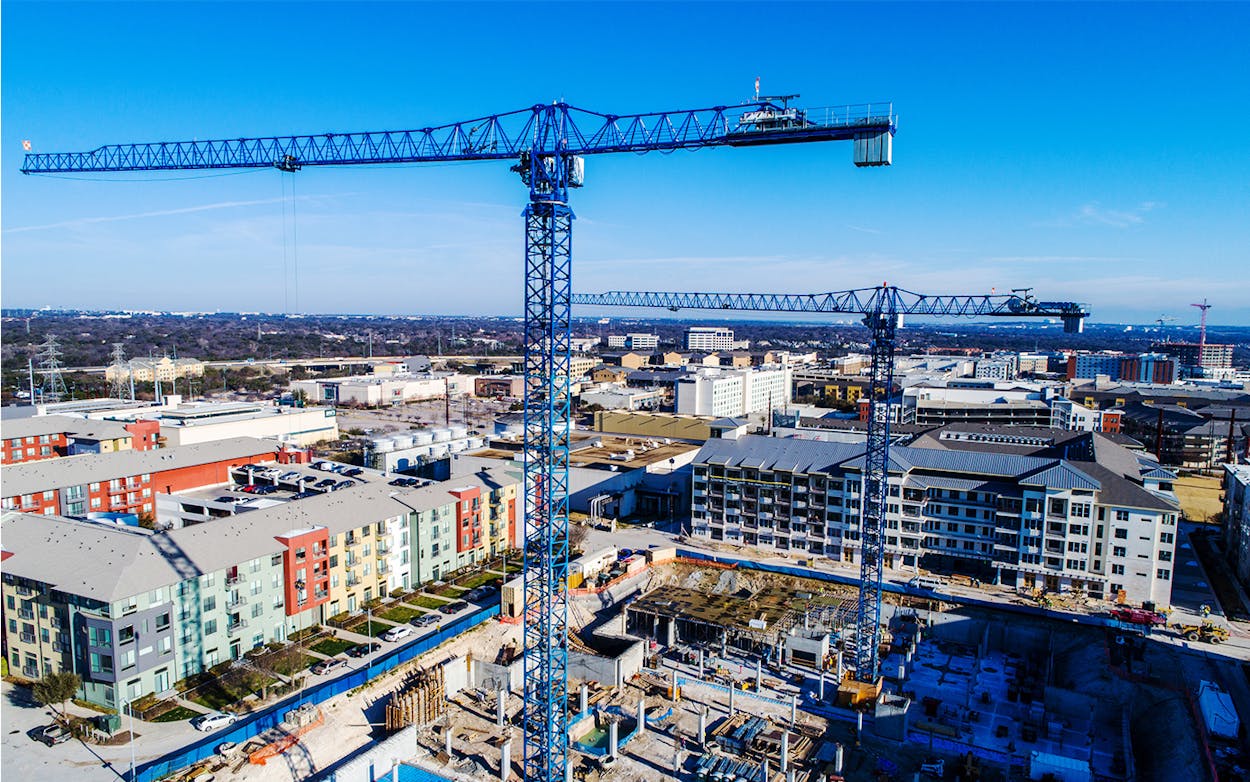Amazon promised that it would announce the site of its HQ2 facility by the end of 2018. We’re now two months away from that self-imposed deadline, and all we have from the tech giant is its short list of twenty finalist cities, which includes both Austin and Dallas.
Back when the short list was announced ten months ago, Austin was considered one of the top contenders. Our capital, along with Atlanta, faced the shortest betting odds, at 3:1. (Dallas, meanwhile, faced 20:1 odds.) That has since shifted—the current favorite is Northern Virginia, with the same odds Austin and Atlanta once had. It’s unclear what, exactly, what could have caused the shift. So even though Austin has 14:1 betting odds at the moment (which is the same chance bookies gave the Chicago Bears for representing the NFC in the Super Bowl), and Dallas sits at a dismal 60:1 (the same odds that the Detroit Lions have), it’s worth treating the future of HQ2 as an open question. Right now, we just don’t know much.
One thing that we do know, though, is that whatever city HQ2 lands in is going to see some fairly significant changes. Chief among them will be the housing market. The Atlantic‘s CityLab explored how real estate speculators and investors will handle the influx of young, well-paid newcomers to housing markets that can already be fairly tight.
According to CityLab, whichever region lands HQ2 can expect more than 120,000 new residents. The facility is expected to employ upwards of 50,000 people, who will be bringing (or starting) families, and who will create demand for additional services that make room for even more new residents. In Austin, that would strain the already sky-high demand for single-family homes (the market for those broke $1.2 billion for the first time in August), and spike rents citywide. Polling conducted in the spring found that 74 percent of Austinites were worried about what the arrival of HQ2 would mean for the city’s cost of living, and for good reason. According to a study in the New York Times in April, being selected as the site of HQ2 would more than double the acceleration of Austin’s rent increases over a ten-year period, which the study found would be worth $262 a month if Amazon chose the capital (compared to the $113 increase projected for Austin over the same period if HQ2 lands elsewhere). Those numbers don’t compare to the spike that the study projected in cities like Denver, Los Angeles, Nashville, and Raleigh. CityLab attributes the smaller increases to the geographic space Austin has to expand its housing supply, should Amazon catapult it into the sort of megalopolis we’ve seen elsewhere in Texas—while cities like Denver and L.A. would see demand increase without much room to grow.
Speaking of Texas megalopolises, the study found that the impact in Dallas would be both larger and smaller—larger in the sense that the increase in rent, should Amazon come to North Texas, would be nearly $575 per month, but smaller because the rent in the DFW area is expected to jump by more than $400 regardless. The Dallas suburbs are already well-developed and experiencing high demand, leaving less room for the city to grow. The impact of HQ2 on Dallas’s market might not be as dramatic, percentage-wise, as what Austin would see, in other words, but expect prices to go up in the future anyway.
Of course, Austin might expect things to change faster than the NYT‘s study found. Although HQ2’s eventual destination is still an open question, Honeywell offshoot Resideo Technologies Inc. announced Austin as its headquarters, relocating from Minnesota and immediately becoming the largest publicly-traded company in the region. Resideo isn’t Amazon-sized—few companies are—but they’re no small potatoes. They currently employ 14,500 people, roughly one-third as many as Amazon would bring to wherever it sets up shop. According to the Austin American-Statesman, the initial staff for the Austin HQ would be about 100 people, though CultureMap Austin reported earlier this week that the company anticipates its leadership, software, and design teams all setting up shop in the city, while it maintains satellite offices in Minnesota and New York.
HQ2’s impact—whether in Northern Virginia, Austin, Dallas, or elsewhere—will be outsized, yes. But it doesn’t necessarily take an Amazon to reshape a housing market like Austin’s or Dallas’s.








